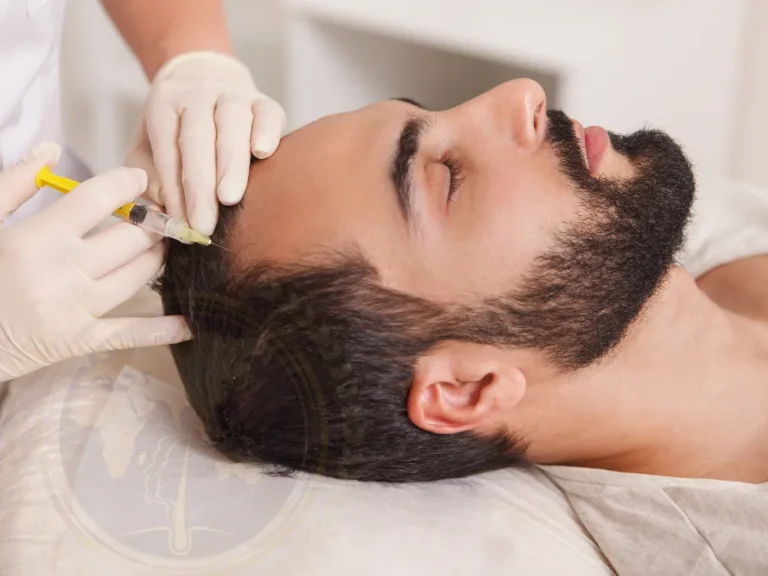Hair Loss Treatment: Comprehensive Guide to Solutions and Remedies
Hair loss is a common concern affecting millions of people globally. While it is often associated with aging, hair loss can occur at any stage of life due to various factors such as genetics, hormonal changes, medical conditions, or environmental influences. Fortunately, there are numerous treatments available that can help manage, slow down, or even reverse hair loss. This guide delves into the most effective hair loss treatments, ranging from medical interventions to natural remedies.
Understanding Hair Loss: Causes and Types
Causes of Hair Loss
Hair loss, medically known as alopecia, can be caused by several factors. Understanding the root cause is crucial for selecting the appropriate treatment.
- Genetic Factors: Androgenetic alopecia, also known as male or female pattern baldness, is the most common type of hair loss. It is hereditary and can start as early as adolescence.
- Hormonal Imbalances: Conditions like thyroid disease, polycystic ovary syndrome (PCOS), and menopause can trigger hormonal imbalances, leading to hair loss.
- Medical Conditions: Autoimmune diseases, such as alopecia areata, and scalp infections can cause significant hair shedding.
- Nutritional Deficiencies: Lack of essential nutrients like iron, vitamin D, and protein can weaken hair follicles, causing hair to fall out.
- Medications: Certain drugs, including chemotherapy agents, blood thinners, and antidepressants, can lead to temporary or permanent hair loss.
- Stress and Lifestyle: High-stress levels, poor diet, and lack of sleep can contribute to hair thinning and loss.
Types of Hair Loss
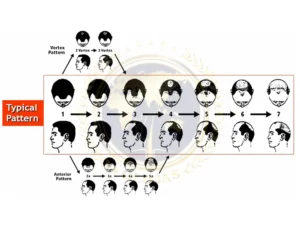
Hair loss can manifest in different forms, and identifying the type is vital for treatment.
- Androgenetic Alopecia: Characterized by a receding hairline and thinning on the crown in men, and diffuse thinning over the crown in women.
- Alopecia Areata: An autoimmune condition that causes patchy hair loss on the scalp, face, or other areas of the body.
- Telogen Effluvium: A temporary form of hair loss caused by stress, illness, or sudden weight loss, leading to diffuse thinning.
- Traction Alopecia: Hair loss resulting from hairstyles that pull on the hair excessively, such as tight ponytails or braids.
Medical Treatments for Hair Loss
1. Prescription Medications

There are several medications available that can help combat hair loss:
- Minoxidil (Rogaine): An over-the-counter topical treatment that stimulates hair growth and slows down hair loss. It is effective for both men and women.
- Finasteride (Propecia): A prescription oral medication for men that reduces the levels of dihydrotestosterone (DHT), a hormone linked to androgenetic alopecia.
- Spironolactone: Often prescribed for women, this medication helps block androgens, reducing hair thinning caused by hormonal imbalances.
2. Hair Transplant Surgery
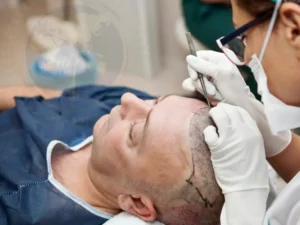
Hair transplant surgery is a permanent solution for hair loss where hair follicles from one part of the body are transplanted to the balding areas. The two main techniques are:
- Follicular Unit Transplantation (FUT): A strip of scalp is removed, and individual follicular units are harvested and transplanted.
- Follicular Unit Extraction (FUE): Individual hair follicles are extracted and implanted into the thinning areas.
3. Laser Therapy
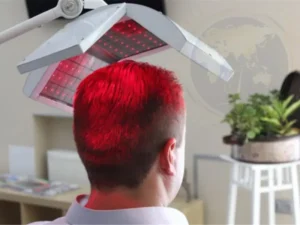
Low-level laser therapy (LLLT) uses red light wavelengths to stimulate hair follicles, encouraging hair growth. It’s a non-invasive option that can be used at home with specialized devices.
4. Platelet-Rich Plasma (PRP) Therapy
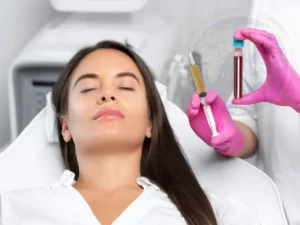
PRP therapy involves drawing a small amount of the patient’s blood, processing it to concentrate the platelets, and then injecting it into the scalp. The growth factors in PRP can stimulate hair follicles and promote hair growth.
Natural Remedies and Lifestyle Changes
1. Nutritional Support
A balanced diet rich in vitamins and minerals is essential for healthy hair. Key nutrients include:
- Biotin: A B-vitamin that strengthens hair and nails. Foods like eggs, nuts, and whole grains are excellent sources.
- Iron: Essential for oxygen transport to hair follicles. Iron-rich foods include red meat, spinach, and lentils.
- Vitamin D: Helps maintain healthy hair follicles. Sunlight and fortified foods are good sources.
- Zinc: Supports hair tissue growth and repair. Found in seafood, meat, and dairy products.
2. Essential Oils
Certain essential oils have been shown to improve hair growth. They can be used in combination with carrier oils for scalp massages.
- Rosemary Oil: Stimulates blood circulation in the scalp, promoting hair growth.
- Peppermint Oil: Encourages hair growth by increasing blood flow to the scalp.
- Lavender Oil: Known for its calming properties, lavender oil also supports hair growth.
3. Scalp Care
Maintaining a healthy scalp is crucial for preventing hair loss and promoting growth:
- Regular Washing: Keeps the scalp clean and free from build-up that can clog hair follicles.
- Exfoliation: Removes dead skin cells and encourages new hair growth.
- Scalp Massage: Stimulates blood circulation, improving the health of hair follicles.
Alternative Treatments for Hair Loss
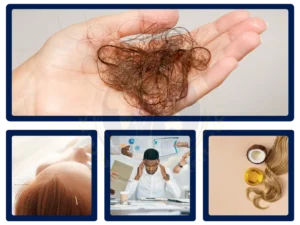
1. Acupuncture
Acupuncture, an ancient Chinese practice, involves inserting fine needles into specific points on the body. It is believed to stimulate hair growth by improving blood flow and balancing energy levels.
2. Herbal Supplements
Certain herbs are believed to promote hair health and combat hair loss:
- Saw Palmetto: Blocks DHT, similar to finasteride, but with fewer side effects.
- Ginseng: Stimulates hair follicles and promotes hair growth.
- Green Tea: Contains antioxidants that can help protect hair follicles from damage.
3. Stress Management
Stress is a significant contributor to hair loss. Techniques such as yoga, meditation, and deep breathing exercises can help manage stress levels and reduce its impact on hair health.
Consulting a Dermatologist
Before starting any hair loss treatment, it’s essential to consult with a dermatologist. They can provide a proper diagnosis, rule out underlying medical conditions, and recommend the most effective treatment plan tailored to individual needs.
Frequently Asked Questions About Hair Loss Treatment
1. How long does it take to see results from hair loss treatments?
Most hair loss treatments require consistent use for at least 3 to 6 months before noticeable results are seen. Some treatments may take longer, depending on the severity of hair loss and the type of treatment used.
2. Can hair loss be reversed?
In many cases, hair loss can be slowed, and some hair regrowth is possible, especially with early intervention. Treatments like minoxidil and finasteride are particularly effective in managing androgenetic alopecia.
3. Are there any side effects of using hair loss medications?
Yes, some medications like minoxidil can cause scalp irritation, while finasteride may lead to sexual side effects in men. It’s essential to discuss potential side effects with a healthcare provider before starting any treatment.
4. Is hair transplant surgery painful?
Hair transplant surgery is performed under local anesthesia, so patients do not feel pain during the procedure. Post-surgery discomfort is usually mild and can be managed with pain relief medication.
5. Do natural remedies for hair loss really work?
Natural remedies can support hair health and potentially slow hair loss, but their effectiveness varies from person to person. They are generally more effective when used as part of a comprehensive treatment plan.
6. Can stress cause permanent hair loss?
Stress-induced hair loss, such as telogen effluvium, is usually temporary. Once the stressor is managed, hair typically regrows, although it can take several months.
Conclusion
Hair loss is a multifaceted issue that can be managed effectively with the right treatment approach. From medical treatments like minoxidil and hair transplants to natural remedies and lifestyle changes, there are options available to suit different needs and preferences. Consulting with a healthcare professional is the best first step towards finding a solution that works for you.

